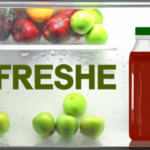Juice
How Long Is Fresh Juice Good For In The Fridge

As a fan of making homemade fresh juice, I understand the importance of proper storage to keep it fresh and high quality. Fresh juice not only tastes delicious, but it is also packed with essential nutrients that are important for our health. However, without adequate preservation, it can quickly spoil and lose its nutritional value.
In this article, I will share my knowledge and experience on how long fresh juice can last in the fridge and the factors that affect its shelf life. I will also provide tips on how to extend the shelf life of your fresh juice and how to store leftover juice from a juicer or store-bought fresh juice.
So, if you’re a juice lover like me, keep reading to learn how to keep your fresh juice fresh and delicious for as long as possible.
Key Takeaways
- Proper storage is important for maintaining freshness and nutritional value of fresh juice.
- Factors affecting shelf life include type of juice, storage method, temperature, and fridge type.
- Using the right fruits/vegetables and creative uses for leftover pulp can help extend shelf life.
- Fresh juice can last up to five days in the fridge and signs of spoiled juice should be discarded immediately.
The Importance of Storing Fresh Juice Properly
You don’t want to ruin the fresh taste of your juice, so make sure you store it properly by sealing it in an airtight container and keeping it in the fridge. This will help preserve the juice’s nutritional benefits and prevent it from going bad too quickly.
Additionally, storing your fresh juice in the fridge will give you more time to experiment with creative recipes and enjoy the juice at its freshest. As someone who regularly makes fresh juice, I can attest to the importance of proper storage.
I’ve found that if I don’t store my juice correctly, it can quickly lose its flavor and nutritional value. So, take the time to properly store your juice and you’ll be able to enjoy it for longer. Speaking of which, there are a few factors that can affect the shelf life of fresh juice.
Factors that Affect the Shelf Life of Fresh Juice
As someone who’s been juicing for years, I’ve learned that several factors can affect the shelf life of fresh juice.
One of the main factors is the type of juice being made, as some fruits and vegetables oxidize quicker than others.
Another important factor is the storage method used, including the type of container and whether or not it’s airtight.
Temperature also plays a role, as warmer temperatures can cause juice to spoil faster.
Additionally, the type of fridge used can impact the freshness of the juice, with some models providing better temperature control than others.
Type of Juice
When it comes to storing fresh juice in the fridge, the type of juice you have can greatly affect how long it stays fresh and delicious. Juices with a thicker consistency, such as those made with root vegetables or fruits like bananas, tend to oxidize faster than thinner juices made with leafy greens or citrus fruits. This is because thicker juices have more pulp and fiber, which can break down and spoil quicker.
Additionally, the juicing method used can also play a role in the shelf life of fresh juice. Cold-pressed juices, which are made using a hydraulic press to extract the juice from fruits and vegetables, tend to have a longer shelf life than juices made using a centrifugal juicer. This is because cold-pressed juices are exposed to less heat and air during the juicing process, which helps to preserve their freshness and nutrients.
When it comes to storing fresh juice, the type of juice you have is just one factor to consider. The storage method you use can also have a big impact on the juice’s shelf life.
Storage Method
If you want to keep your juice tasting its best, it’s important to choose the right storage method. Here are a few tips for storing fresh juice in the fridge:
- Use airtight juice storage containers to prevent air from getting in and oxidizing the juice.
- Store your juice in the back of the fridge to keep it at a consistent temperature, rather than near the door where the temperature fluctuates more.
- Keep your juice away from other strong-smelling foods so that it doesn’t absorb their flavors and odors.
- Rotate your juice stock regularly to prevent any juice from sitting in the fridge for too long and going bad.
As someone who’s been juicing for years, I know how important proper storage is for keeping your juice fresh and delicious. Using the right juice storage containers can make a big difference in how long your juice lasts and how good it tastes.
And by rotating your juice stock, you can ensure that you’re always drinking the freshest juice possible.
Moving on to the next step, let’s talk about the role of temperature in keeping your juice fresh.
Temperature
To make sure your juice tastes delicious, it’s important to pay attention to the temperature at which it’s stored. Ideally, juice should be stored in the refrigerator at a temperature between 32 and 40 degrees Fahrenheit. This helps preserve the juice consistency and flavor for a longer period of time.
Here’s a table to give you a better idea of the ideal serving temperature for different types of juice:
| Juice Type | Serving Temperature |
|---|---|
| Citrus Juice | 40-50 degrees Fahrenheit |
| Apple Juice | 40-50 degrees Fahrenheit |
| Vegetable Juice | 50-60 degrees Fahrenheit |
| Berry Juice | 60-70 degrees Fahrenheit |
| Pineapple Juice | 70-80 degrees Fahrenheit |
It’s important to note that the temperature of your fridge can affect how long your juice stays fresh. In the next section, we’ll discuss the impact of fridge type on juice storage.
Fridge Type
Choosing the right type of fridge can greatly impact how well your juice stays preserved and delicious over time. When it comes to fresh juice, it’s best to store it in a fridge that has temperature control.
A fridge with temperature control allows you to adjust the temperature to ensure that your juice stays at the optimal temperature to keep it fresh for as long as possible. Here are some other features of a fridge that can help keep your juice fresh:
- A fridge with a door alarm can help alert you when the fridge door has been left open, which can cause the temperature in the fridge to rise and affect the freshness of your juice.
- A fridge with a built-in water dispenser can also be helpful, as it allows you to quickly and easily fill your glass with cold water to mix with your juice.
- A fridge with a built-in ice maker can also be useful, as it allows you to quickly and easily make ice to add to your juice.
- A fridge with a separate compartment for fruits and vegetables can be helpful, as it allows you to store your ingredients separately and keep them fresh for longer.
With the right type of fridge and temperature control, you can keep your fresh juice delicious and preserved for as long as possible. So, now that you know about the best types of fridges for storing juice, let’s move on to the next section where we’ll discuss how long fresh juice can last in the fridge.
How Long Can Fresh Juice Last in the Fridge?
Fresh juice can last up to five days in the fridge, but have you ever wondered if it’s still safe to drink after that time? As someone who’s been juicing for years, I’ve found that the best way to ensure that fresh juice lasts as long as possible is to use the right fruits and vegetables.
Some produce, like apples and carrots, can last longer than others, like leafy greens. Additionally, I’ve found that using the leftover juice pulp in recipes can be a great way to reduce waste and get the most out of your ingredients.
One of my favorite ways to use leftover juice pulp is to make veggie burgers. Simply mix the pulp with some cooked quinoa, breadcrumbs, and spices, form into patties, and cook on a skillet or grill. Another great option is to use the pulp in smoothies or baked goods, like muffins or bread.
By using the pulp in creative ways, not only are you reducing waste, but you’re also getting more fiber and nutrients into your diet. However, it’s important to note that even with the best fruits and vegetables and creative uses for leftover pulp, fresh juice can still go bad.
Signs that your fresh juice has gone bad can include a sour or off smell, a change in color or texture, or visible mold. If you notice any of these signs, it’s best to err on the side of caution and discard the juice.
So, while fresh juice can last up to five days in the fridge, it’s important to pay attention to the signs that it may have gone bad in order to ensure that you’re consuming safe and healthy food.
Signs that Your Fresh Juice Has Gone Bad
Hey, have you ever wondered how to tell if your juice has gone bad? It’s important to know the signs of spoiled juice so that you don’t risk drinking something that could make you sick. Here are some common indicators that your fresh juice has gone bad:
| Sign | Explanation |
|---|---|
| Mold | Mold is a clear indication that your juice has gone bad. If you see any mold growing on the surface of your juice, discard it immediately. |
| Foul odor | If your juice smells off or sour, it’s likely that it has gone bad. Fresh juice should have a pleasant aroma, so if it smells bad, it’s best to throw it out. |
| Change in color | If your juice has changed from its original color, it’s a sign that it has gone bad. For example, if your orange juice has turned brown, it’s no longer safe to drink. |
If you find that your fresh juice has gone bad, don’t worry! There are ways to repurpose expired fresh juice, such as using it as a base for smoothies or adding it to marinades for meat. However, it’s always best to avoid common mistakes in storing fresh juice and extend its shelf life as much as possible.
Tips for Extending the Shelf Life of Your Fresh Juice
If you want to enjoy your healthy drink for a few more days, you should follow these simple tips to keep it from spoiling.
First and foremost, it’s important to store your fresh juice in an airtight container to prevent air exposure. This will help to maintain the quality and freshness of the juice for a longer period of time.
Additionally, you should store your juice in the fridge as soon as possible, ideally within 30 minutes of juicing. This will help to slow down the oxidation process and keep your juice from going bad too quickly.
Another great tip for extending the shelf life of your fresh juice is to get creative with your juice recipes. By mixing different fruits and vegetables, you can create unique flavor combinations that will keep your taste buds satisfied and your drink interesting.
And don’t forget, the pulp that’s left over from juicing can also be used in a variety of ways, such as in smoothies or as a base for soups and stews. By making the most of your ingredients, you can reduce waste and get the most out of your fresh juice experience.
Now, let’s move on to how to store leftover juice from a juicer.
How to Store Leftover Juice from a Juicer
To preserve the nutrients and flavor of your leftover juice, seal it in a mason jar and place it in the freezer. It will remain as fresh as a daisy until you’re ready to thaw it out and enjoy it. This is one of the best ways to store your fresh juice for future use.
Not only does freezing your juice keep it fresh, but it also allows you to have a stockpile of juice for when you’re in a hurry. Don’t waste the pulp! Instead, use it to create delicious and healthy recipes such as muffins, soups, or even vegetable patties. This reduces food waste and provides you with additional nutrients that may have been lost during the juicing process.
With these creative juice storage ideas, you’ll never have to worry about wasting leftover juice or pulp again. Now, let’s move on to how to store store-bought fresh juice to ensure it stays fresh for as long as possible.
How to Store Store-Bought Fresh Juice
Now that we’ve discussed how to store leftover juice from a juicer, let’s move on to the topic of how to store store-bought fresh juice. As someone who enjoys fresh juice regularly, I know how crucial it is to properly store it to maintain its freshness and quality.
Here are some tips for storing store-bought fresh juice:
- Keep the juice refrigerated at all times, even if it’s unopened.
- Check the expiration date on the bottle and consume the juice before that date.
- To extend the shelf life of the juice, you can freeze it in ice cube trays and use it later for creative recipes.
When it comes to storing fresh juice, DIY storage options can come in handy. You can use mason jars or reusable glass bottles to store your juice. These options aren’t only eco-friendly but also allow you to easily see the contents of the container. Additionally, making your juice at home and storing it properly can save you money in the long run.
When you have leftover juice pulp, there are many ways to use it in creative recipes. Let’s explore some fun and tasty ways to use leftover juice pulp!
How to Use Leftover Juice Pulp
Let’s get creative with leftovers! Don’t toss that pulp just yet – there are plenty of delicious ways to use it in your cooking and baking.
Juice pulp recipes are a great way to utilize leftover pulp, reducing food waste and adding fiber and nutrients to your meals. Pulp can be used in recipes for baked goods, smoothies, soups, and even as a binder for veggie burgers.
One of my favorite juice pulp recipes is for carrot pulp muffins. I mix the pulp with flour, sugar, baking powder, and spices, and then add eggs and oil to make a batter. The muffins come out moist and flavorful, and it feels great knowing I’m using every part of the produce.
Another way to use juice pulp is by composting it. Pulp is a great source of organic matter and can help enrich the soil in your garden.
Now that we’ve explored some ways to use leftover juice pulp, let’s move on to the benefits of fresh juice.
Benefits of Fresh Juice
Sipping on a glass of vibrant, nutrient-rich juice is like a burst of sunshine for your body. As someone who’s been juicing for years, I can attest to the amazing benefits fresh juice has to offer.
Not only does it taste delicious, but it’s also an easy way to consume a variety of fruits and vegetables in one sitting. The nutritional benefits of fresh juice are countless. By extracting the juice from produce, you’re left with a concentrated source of vitamins, minerals, and antioxidants.
Depending on the ingredients you use, juicing can help boost your immune system, improve digestion, and even reduce inflammation. Plus, there are endless juicing recipes to choose from, so you can tailor your juice to fit your specific health goals.
So why not give your body a boost of nutrients and try incorporating fresh juice into your daily routine?
Frequently Asked Questions
Can I freeze fresh juice to extend its shelf life?
Yes, I freeze fresh juice to extend its shelf life. Freezing is one of the best preservation techniques. It helps to retain the nutrients of the juice while keeping it fresh for a longer time.
How often should I clean my juicer to ensure the freshness of the juice?
I recommend cleaning your juicer after every use to ensure the freshness of your juice. Regular maintenance, such as disassembling and cleaning all parts, will prevent buildup and extend the life of your machine.
Can I mix different types of fresh juice together and store them in the fridge?
Mixing different types of fresh juice together is a great way to experiment with flavor combinations and cater to your taste preferences. As someone who has tried countless concoctions, I can assure you that the possibilities are endless!
Is it safe to drink fresh juice that has been left out at room temperature for a few hours?
As someone who has studied nutrition, I know that leaving fresh juice at room temperature for even a few hours can significantly decrease its nutritional value. Additionally, there are safety concerns with drinking warm fresh juice, as bacteria can grow rapidly in that environment.
How can I tell if my fresh juice has oxidized and gone bad?
I once left a freshly squeezed juice out on the counter overnight and the next morning it had a strange metallic taste. Signs of oxidation include a change in color and taste. Best ways to store are in an airtight container in the fridge.
Conclusion
Well folks, there you have it! Now you know the answer to the age-old question, ‘how long is fresh juice good for in the fridge?’
As someone who’s been juicing for years, I can tell you that proper storage is key to ensuring your juice stays fresh and nutritious.
Remember, factors like temperature, exposure to air, and the type of produce used can all affect the shelf life of your juice.
But with a little know-how and some simple tips, you can extend the life of your juice and enjoy all the health benefits that come with it.
So go ahead, grab your juicer, and start juicing! Because as they say, an apple a day keeps the doctor away!
Ilana has been a vegan for over 10 years. She originally made the switch for health reasons, but soon found herself becoming more and more passionate about the ethical and environmental implications of a vegan lifestyle. Ilana is the author of The Graceful Kitchen, a blog all about veganism. She loves to cook up delicious and nutritious vegan meals, and share her recipes with others who are interested in leading a cruelty-free life. Ilana is also a strong advocate for using whole foods as the foundation of a healthy diet, and believes that going vegan is one of the best ways to achieve this.
Juice
How To Freeze Peaches Without Lemon Juice

As a lover of all things fruity and sweet, I eagerly look forward to peach season every year. There’s nothing quite like biting into a juicy, ripe peach on a hot summer day. However, sometimes I end up with more peaches than I can eat before they go bad. That’s when freezing them comes in handy, preserving the taste of summer for months to come.
However, many recipes for freezing peaches call for lemon juice, which can alter the natural flavor of the fruit. As someone who wants to enjoy the pure taste of peaches, I’ve developed a method for freezing them without using lemon juice.
In this article, I’ll share my step-by-step process for freezing peaches without any added ingredients, so you can enjoy the full, sweet flavor of summer peaches all year round.
Key Takeaways
- Peeling and slicing peaches makes them easier to use
- Blanching peaches can make peeling easier
- Too much sugar syrup can affect the texture and taste of peaches
- Frozen peaches can last up to 6 months
Choosing the Right Peaches
You’ll want to make sure you pick the juiciest, most flavorful peaches – they’ll make all the difference in your frozen treats!
When it comes to peach ripeness, you’ll want to choose peaches that are fully ripe, but not overripe. Look for peaches that are slightly soft to the touch, with a sweet aroma. Avoid peaches that are hard or have green patches, as these aren’t yet ripe enough to use.
Another important factor to consider is the flavor profile of the peach. Different varieties of peaches have varying levels of sweetness and tartness, so choose a variety that suits your taste buds.
For example, if you like your peaches on the sweeter side, look for varieties like the Elberta or O’Henry. If you prefer a more tart flavor, the Red Haven or Loring may be better options.
Once you’ve chosen your perfect peaches, it’s time to move on to preparing them for freezing.
Preparing Your Peaches
Before freezing your peaches, it’s important to prepare them properly.
First, I like to wash and dry the peaches thoroughly to remove any dirt or debris.
Then, I use a peeler to remove the skin and slice the peaches into pieces that are the perfect size for my recipes.
These steps ensure that my frozen peaches are clean, easy to use, and ready to be enjoyed whenever I want.
Washing and Drying
After picking fresh peaches, it’s important to gently wash and pat them dry before beginning the freezing process. This step is crucial in ensuring that the peaches remain fresh and free from any dirt or debris.
Here are some tips for washing and drying your peaches:
-
Importance of ripeness: Make sure your peaches are fully ripe before washing them. This will ensure that they have the best flavor and texture when you freeze them.
-
Drying techniques: To dry your peaches, gently wipe them with a clean cloth or paper towel. Avoid using a harsh scrubbing motion as this can damage the delicate skin of the peaches.
-
Air drying: Alternatively, you can also air dry your peaches by placing them on a clean towel or rack and leaving them to dry naturally. This method may take longer but it’s a great way to avoid any damage to the peaches.
Once your peaches are washed and dried, you’re ready to move on to peeling and slicing them for freezing.
Peeling and Slicing
As you sink your teeth into a juicy peach, imagine how satisfying it would be to slice and peel them for freezing. Before you start slicing, it’s important to peel your peaches. You can use a vegetable peeler or a knife to remove the skin. If the peach is ripe, the skin should come off easily. If you’re struggling, try blanching the peaches to loosen the skin.
Blanching is a technique that involves boiling the peaches for a short period of time and then immediately transferring them to an ice bath to stop the cooking process. This will cause the skin to loosen, making peeling much easier.
Once you have peeled your peaches, it’s time to slice them. You can slice them into wedges or cubes, whatever works best for you. It’s important to note that frozen peaches tend to be a bit softer than fresh ones, so you may want to slice them a bit thicker than you normally would.
If you don’t want to use the blanching technique, there are other freezing alternatives. You can simply slice and freeze the peaches as they are, or you can add a bit of sugar or ascorbic acid to help preserve their color and texture.
With your peaches sliced and ready to go, it’s time to move on to treating them before freezing.
Treating Your Peaches
First, you’ll need to wash your peaches thoroughly to remove any dirt or debris. Once your peaches are clean, you can start treating them.
Blanching peaches is a great way to remove the skin without losing any of the fruit’s flavor. To do this, bring a large pot of water to a boil and drop in your peaches for about 30 seconds. Use a slotted spoon to remove the peaches, and immediately transfer them to a bowl of ice water. This will stop the cooking process and make it easier to remove the skin. Once the peaches are cool enough to handle, you can easily peel off the skin with a knife or your fingers.
After blanching and peeling your peaches, it’s time to treat them with a sugar syrup. This will help preserve the peaches and keep them from browning. To make the syrup, combine equal parts sugar and water in a saucepan and heat until the sugar dissolves. Allow the syrup to cool completely.
Once the syrup is cool, you can add your peaches and let them soak for about 10 minutes. This will give them a nice sweet flavor and help keep them fresh. Now that your peaches are blanched, peeled, and treated with sugar syrup, you’re ready to freeze them.
Note: Avoid using too much sugar syrup as it can affect the texture and taste of the peaches.
Freezing Your Peaches
Now that we have prepared our peaches, it’s time to freeze them without using lemon juice. To achieve this, we will be using a sugar substitute and blanching the fruit. The sugar substitute will help preserve the color and flavor of the peaches, while blanching will help remove the skin easily.
To start, let’s prepare the sugar substitute. In a mixing bowl, combine 1 cup of sugar substitute with 1 cup of water and stir until the sugar substitute is dissolved. Next, we will blanch the peaches. Bring a large pot of water to a boil and carefully place the peaches in the boiling water for 30 seconds to 1 minute. Remove the peaches from the boiling water and immediately transfer them to a bowl of ice water to stop the cooking process. Once the peaches have cooled, remove the skin and pit them. Finally, slice the peaches into desired sizes and place them in a freezer-safe container. Pour the sugar substitute solution over the peaches until they are completely covered and freeze them for up to 6 months.
With our peaches now frozen, it’s time to move on to the final step of storing them properly.
Storing Your Frozen Peaches
When it comes to storing your frozen peaches, there are a couple of key points to consider. First, it’s important to choose the right container to store your peaches in. I like to use freezer-safe bags or containers with tight-fitting lids to keep my peaches fresh and prevent freezer burn.
Second, labeling your containers is crucial to avoid confusing your peaches with other frozen fruits or vegetables. I always make sure to write the date and contents on each container so I can easily identify what’s inside and when I froze it.
Containers
To ensure your frozen peaches stay fresh, it’s important to choose the right container. Mason jars are a great option because they’re sturdy, airtight, and reusable. They won’t leak, which helps keep your freezer clean. Make sure to leave some headspace at the top of the jar to allow for expansion during freezing. This will prevent your jars from cracking or breaking in the freezer.
Another option for freezing peaches is to use plastic bags. Make sure to choose freezer-safe bags that are thick and durable. These bags will protect your peaches from freezer burn and prevent any leaks. When filling the bags, try to remove as much air as possible before sealing. This will help prevent ice crystals from forming and keep your peaches fresh for longer.
Now that you have chosen the right container for your frozen peaches, it’s important to label them with the date and contents. This will help you keep track of how long they’ve been in the freezer and make it easier to find them when you need them.
In the next section, we’ll discuss the importance of labeling your frozen peaches in more detail.
Labeling
Labeling your frozen peaches is essential to ensure that you don’t end up with a bunch of anonymous fruits in your freezer. When it comes to labeling tips, use a permanent marker to write the date of freezing, the quantity, and any other relevant information. This way, you’ll know how long the peaches have been in your freezer and when they’ll expire.
It’s also helpful to include the type of peaches you have frozen, especially if you have multiple varieties. The importance of storage date cannot be overstated. Not only does it help you keep track of how long the peaches have been frozen, but it also helps you plan your meals accordingly.
You can easily determine which bags or containers of peaches need to be used up first based on the date of freezing. And when it comes to thawing your peaches, you’ll have a better idea of how long they’ve been frozen and whether they’re still good to eat. Speaking of thawing, let’s discuss the next step in the process.
Thawing Your Peaches
When thawing my frozen peaches, I usually have two options: refrigeration or room temperature. If I plan ahead, I prefer to thaw my peaches in the refrigerator overnight. This method allows for a slow, even thaw and results in firmer peaches with less juice.
I’ve found that when I thaw peaches at room temperature, they tend to become mushy and lose their texture. So, I always opt for refrigeration when possible. Plus, it’s a hands-off approach that requires minimal effort on my part.
Refrigeration
If you’re short on time, the quickest way to preserve your peaches is by refrigerating them. This method is perfect if you plan to use the peaches within a few days. Storing peaches in the fridge will slow down the ripening process, which means they’ll stay fresh for longer. Here’s a table to help you better understand the different storing options and the shelf life of peaches:
| Storing Option | Shelf Life |
|---|---|
| Room Temperature | 1-2 Days |
| Refrigeration | 3-5 Days |
| Freezing | 8-12 Months |
As you can see, refrigeration can extend the shelf life of your peaches by a few more days. However, if you plan to keep your peaches for an extended period, it’s better to freeze them. In the next section, I’ll explain how to freeze peaches without lemon juice.
Room Temperature
Sometimes, you just can’t resist the sweet scent of a fresh peach sitting on your kitchen counter at room temperature. And the good news is, room temperature storage can actually benefit your peaches!
When kept at room temperature, peaches continue to ripen and become softer and juicier. Plus, they’ll retain more of their natural flavor and nutrients.
But there are some best practices for handling room temperature peaches. First, make sure to keep them out of direct sunlight or heat sources, which can cause them to spoil more quickly. Second, inspect them regularly for any signs of bruising or mold, and remove any damaged fruit immediately. And finally, consume them within a few days of purchase for the best taste and texture.
Now that you’ve enjoyed your fresh peaches at room temperature, it’s time to freeze the rest for later use.
Using Your Frozen Peaches
Now that I’ve got my peaches frozen, I can’t wait to start using them in my baking, smoothies, and sauces.
When it comes to baking, frozen peaches are a great addition to pies, cobblers, and muffins.
For smoothies, I like to blend them with some yogurt and honey for a delicious and healthy treat.
Lastly, frozen peaches can also be used to make a sweet and tangy sauce that goes well with pork or chicken dishes.
Baking
You can easily add frozen peaches to your favorite baking recipes, giving your treats a sweet burst of flavor that will knock your socks off. Whether you’re making peach cobbler, peach pie, or peach muffins, frozen peaches are a great way to infuse your baked goods with the taste of summer all year round.
To help you get started, here are some recipe variations you can try with your frozen peaches:
| Recipe | Variation |
|---|---|
| Peach cobbler | Add crumbled graham crackers to the topping for a crunchy texture |
| Peach pie | Mix in some cinnamon and nutmeg for a warm, spicy flavor |
| Peach muffins | Top with a streusel made from brown sugar, flour, and butter |
When it comes to storage hacks, you can freeze your peaches in portioned sizes so that you can easily grab what you need for your recipe. Simply place sliced peaches on a baking sheet and freeze until solid, then transfer them to a freezer-safe bag. This way, you won’t have to worry about thawing more than you need.
Now that you know how to incorporate frozen peaches into your baking, let’s move on to the next section and learn how to make delicious peach smoothies.
Smoothies
Indulge in the sweet, creamy goodness of a peach smoothie, bursting with the taste of summer. Smoothies are a great way to use up the abundance of peaches you have on hand, and they make for a healthy and refreshing snack or breakfast option.
Here are three smoothie recipes you can try:
- Peach and banana smoothie: Blend together one ripe banana, one peeled and sliced peach, one cup of almond milk, and a handful of ice cubes until smooth.
- Peach and yogurt smoothie: In a blender, combine one cup of plain Greek yogurt, one sliced peach, one tablespoon of honey, and a splash of vanilla extract. Blend until smooth and creamy.
- Peach and green smoothie: This smoothie is packed with nutritional benefits! Blend together one sliced peach, one cup of spinach, one banana, one cup of almond milk, and a handful of ice until smooth.
Smoothies are a delicious and easy way to enjoy the sweet taste of peaches while also getting a dose of vitamins and nutrients. But if you’re looking for something a little more savory, let’s move on to the next section about sauces and how you can use frozen peaches to make them.
Sauces
If you’re a fan of adding a little zing to your meals, a peach sauce is a must-try. It’s as versatile as ketchup and as tangy as mustard. Creating a delicious peach sauce is all about exploring flavor combinations and utilizing different cooking techniques.
For a sweet and savory flavor combo, try combining peaches with garlic, ginger, and soy sauce. Or, for a spicier kick, add in some red pepper flakes or jalapenos. When cooking the sauce, start by sautéing onions and garlic in a bit of oil before adding in your peaches and other desired ingredients. Let the sauce simmer until it thickens and the flavors meld together.
Now, if you’re looking for alternative methods of preserving peaches, there are a few options to consider. One such method is freezing, which can be done without the use of lemon juice.
Alternative Methods of Preserving Peaches
There are other ways to preserve peaches without using lemon juice, so let’s explore some alternative methods!
When it comes to preserving peaches, there are two main methods: canning and freezing. Canning involves boiling the peaches in a sugar syrup and storing them in airtight jars, while freezing simply requires washing, slicing, and freezing the peaches in a single layer on a baking sheet before transferring them to a freezer-safe bag. Both methods can preserve peaches for months, but freezing is a simpler and more convenient option for those who don’t have the time or equipment for canning.
If you’re looking for a more natural way to preserve your peaches, there are a few options that don’t involve adding any sugar or artificial preservatives. One method is to dehydrate the peach slices in a dehydrator or oven until they are completely dry and brittle. Another option is to ferment the peaches by submerging them in a saltwater brine for several days, which encourages the growth of beneficial bacteria that can help preserve the fruit. Finally, you can also store the peaches in a cool, dark place with good airflow, such as a root cellar or pantry, where they can slowly ripen and develop a sweeter flavor over time.
Now that we’ve explored some alternative methods for preserving peaches, let’s move on to common mistakes to avoid when freezing or canning them.
Common Mistakes to Avoid
Preserving peaches can be a tricky endeavor, as one wrong move can turn your sweet, juicy fruit into a mushy mess. When it comes to freezing peaches without lemon juice, there are a few common mistakes to avoid.
Firstly, make sure to avoid discoloration by blanching the peaches before freezing. This involves boiling the peaches for about 30 seconds, then immediately placing them in an ice bath to stop the cooking process. This will help maintain the bright color of your peaches.
Another important factor to consider is proper sealing techniques. If your peaches are not sealed tightly, they may become freezer burnt and lose their flavor. Make sure to use air-tight containers or freezer bags, and remove as much air as possible before sealing.
Label the containers with the date and contents, and store them in the freezer right away. By avoiding these common mistakes, you can enjoy your frozen peaches all year round without any problems.
Frequently Asked Questions
Can I freeze peaches that are not fully ripe?
I wouldn’t recommend freezing unripe peaches as they won’t have the same freezing quality as ripe ones. The peach ripeness is crucial for the freezing process to work well, ensuring the best texture and taste.
How long can I store frozen peaches?
To properly store frozen peaches, freeze them in batches and keep them in an airtight container. They can last up to 8-12 months in the freezer.
Can I use a vacuum sealer to freeze my peaches?
Yes, I can use a vacuum sealer to freeze my peaches. The advantages of vacuum sealing include extending the freezer life of the peaches and preventing freezer burn. However, the disadvantages include the cost of the vacuum sealer and the need for extra equipment.
Can I add sugar to the peaches before freezing them?
Adding sugar to peaches before freezing is a sweet way to preserve their flavor. While lemon juice has benefits for freezing, alternatives like sugar can give peaches a delicious taste.
Can I freeze peach slices instead of whole peaches?
Yes, I prefer freezing peach slices instead of whole peaches. It allows for more versatile use in recipes and quicker thawing. However, texture comparison between the two freezing methods may vary.
Conclusion
Well, there you have it, folks! The ultimate guide to freezing peaches without lemon juice.
I hope you found this article helpful and informative. Now that you know how to properly freeze your peaches, you can enjoy them all year round.
But wait, there’s more! Did you know that there are other methods of preserving peaches besides freezing? Canning and dehydrating are also great options. So, if you’re feeling adventurous, give those a try too!
Just remember to always choose the best quality peaches and follow the proper techniques for preserving them.
In conclusion, with a little bit of effort and know-how, you can enjoy the sweet taste of peaches no matter the season. So, go ahead and stock up on those peaches and get to preserving! Your taste buds will thank you.
Ilana has been a vegan for over 10 years. She originally made the switch for health reasons, but soon found herself becoming more and more passionate about the ethical and environmental implications of a vegan lifestyle. Ilana is the author of The Graceful Kitchen, a blog all about veganism. She loves to cook up delicious and nutritious vegan meals, and share her recipes with others who are interested in leading a cruelty-free life. Ilana is also a strong advocate for using whole foods as the foundation of a healthy diet, and believes that going vegan is one of the best ways to achieve this.
Juice
How To Get Beet Juice Out Of Carpet

Have you ever had the experience of spilling beet juice on your carpet by accident, thinking it was the worst thing that could happen? Trust me, I know the feeling. The deep red stain it creates is famously tough to get rid of and can seem like an impossible task.
But fear not! With a bit of quick thinking and the right tools, you can successfully remove beet juice from your carpet and restore it to its former glory.
Picture this: you’re cooking up a storm in the kitchen, whipping up a delicious beet salad. As you’re slicing the beets, one slips out of your hand and lands on the carpet. Your heart drops as you watch the deep red juice seep into the fibers.
But don’t panic! In this article, I will guide you through the steps to effectively remove beet juice from your carpet, so you can get back to enjoying your delicious meal without any added stress.
So, let’s get started!
Key Takeaways
- Act quickly to prevent the stain from setting in.
- Use a vinegar solution to break down the stain and lift it from the carpet fibers.
- Persistence and patience are key in fully removing stubborn stains.
- Consider professional cleaning if the stain persists after multiple attempts.
Act Quickly
Don’t panic, but you need to act fast if you want to save your carpet from the stain of beet juice. The longer you wait, the harder it’ll be to remove the stain.
Start by using a clean cloth or paper towel to blot up as much of the juice as you can. Don’t rub the stain, as this’ll only make it worse. Instead, use a blotting technique, pressing down firmly on the stain to absorb as much of the liquid as possible.
Next, mix a vinegar solution by combining equal parts white vinegar and water. Apply the solution to the stained area using a clean cloth or sponge, and blot the area again. The vinegar solution will help to break down the stain and lift it from the carpet fibers.
Once you have blotted the area thoroughly, move on to the next step of gathering your cleaning supplies.
Gather Your Cleaning Supplies
Before embarking on the cleaning process, it’s important to prepare by gathering all the necessary supplies. To effectively remove beet juice stains from your carpet, you’ll need a few cleaning techniques and DIY options.
Firstly, you’ll need a clean white cloth or paper towel to blot the stain. Avoid using colored towels or sponges as they may transfer dye onto the carpet. You’ll also need a solution of warm water and mild dish soap, or a commercial carpet cleaner. Additionally, having a spray bottle filled with vinegar and water can also be helpful.
Once you’ve gathered all your cleaning supplies, it’s time to tackle the beet juice stain. Start by blotting the stain with a clean white cloth or paper towel to remove as much of the juice as possible. Avoid rubbing the stain as this can cause it to spread and become more difficult to remove.
After you’ve blotted as much as you can, apply your cleaning solution to the stain and allow it to sit for a few minutes. But before doing that, it’s important to test the cleaning solution in a small, inconspicuous area of the carpet to ensure it doesn’t cause any damage or discoloration.
Test the Cleaning Solution
Congratulations, you’ve decided to play a game of Russian roulette with your carpet by testing the cleaning solution in a small, inconspicuous area. This is an effectiveness test to see if the cleaning solution is suitable for your carpet.
To do this, you need to follow these steps:
- Choose a small area of the carpet that isn’t visible, like a corner or under a piece of furniture.
- Apply a small amount of the cleaning solution to the area.
- Let it sit for a few minutes, then blot it with a clean cloth.
If the carpet doesn’t show any signs of discoloration or damage, then the cleaning solution is safe to use. However, if there are any adverse effects, it’s best to look for alternative solutions.
Now that you’ve tested the cleaning solution, it’s time to apply it to the affected area.
Apply the Cleaning Solution
Now it’s time to apply the cleaning solution to the affected area and restore your carpet’s appearance. Before starting the application process, it’s important to note that different carpets will have different cleaning requirements. Therefore, it’s crucial to follow the manufacturer’s instructions and test the cleaning solution on a small, inconspicuous area of the carpet before applying it to the stain.
Once you’ve determined that the cleaning solution is safe to use, you can begin the application process. There are several application techniques that can be used, including spraying, blotting, or dabbing the cleaning solution onto the stain. It’s important to ensure that the cleaning solution is evenly distributed over the affected area and that it penetrates deep into the carpet fibers.
With the right application techniques and a little bit of elbow grease, you should be able to remove the beet juice stain completely and restore your carpet to its original condition.
To ensure complete stain removal, it may be necessary to repeat the process a few times. However, it’s important to avoid over-saturating the carpet, as this can cause damage to the fibers and lead to further staining.
In the next section, we’ll discuss the steps required to repeat the process and achieve optimal results.
Repeat the Process
For optimal results, it’s crucial to repeat the cleaning process a few times and ensure that every last bit of the stubborn stain is removed from your beautiful carpet.
Don’t be discouraged if you don’t see results right away, as it may take some time and persistence to fully remove the beet juice stain. Repeat effectiveness is key in ensuring that the cleaning solution seeps deep into the fibers of your carpet and lifts the stain from every angle.
Time management is also important when repeating the cleaning process. Allow enough time for the cleaning solution to work its magic before blotting it up with a clean cloth or paper towel.
Don’t rush the process, as this could lead to a half-hearted cleaning job that leaves behind remnants of the stain. Once you’re satisfied that the stain has been completely removed, move on to the next step of using a carpet cleaner to deep clean your carpet and prevent future stains.
Use a Carpet Cleaner
Using a carpet cleaner is a great way to ensure that your carpet stays fresh and clean for a long time. When dealing with carpet stain removal, using a carpet cleaner can be one of the most effective DIY cleaning methods.
Carpet cleaners are designed to remove dirt, stains, and odors from carpets, leaving them looking and smelling great. To use a carpet cleaner, start by vacuuming the area to remove any loose dirt or debris. Then, mix the cleaning solution according to the instructions on the carpet cleaner.
Apply the solution to the stained area and use the carpet cleaner to scrub the area thoroughly. Finally, rinse the area with water and use a clean cloth to blot up any excess moisture. Let the carpet dry completely before walking on it again.
Using a carpet cleaner is an effective and efficient way to remove beet juice stains from your carpet. By following these simple steps, you can ensure that your carpet stays clean and fresh for a long time. Now, let the carpet dry completely before moving on to the next step of carpet stain removal.
Let the Carpet Dry
Allow your rug to completely dry before resuming regular use, as this will prevent any remaining moisture from causing further damage. To ensure that the carpet is completely dry, you can use preventive measures such as opening windows or turning on fans to increase air circulation. This will also help to remove any lingering odors that may be present.
Additionally, there are various drying techniques that you can use to expedite the carpet drying process. One effective technique is to use a clean, absorbent towel to blot the area where the beet juice stain was located. Repeat this process until the towel no longer absorbs any moisture. Another technique is to use a hair dryer on the cool setting to blow air over the affected area. However, be sure to keep the hair dryer a safe distance away from the carpet to avoid any heat damage.
With these preventive measures and drying techniques, your carpet should be dry and ready for inspection.
Inspect the Carpet
Before moving on from the previous step, I always make sure to inspect the carpet thoroughly. This involves checking for any remaining stains or discoloration. Even the slightest bit of beet juice residue can cause further damage if left unattended. If there are still visible stains, I repeat the cleaning process until the carpet is clean and free of any beet juice residue. It’s important to be thorough in this step to ensure a successful outcome.
Check for Remaining Stains
Now that you’ve blotted up as much of the beet juice as possible, take a closer look at the carpet to see if there are any remaining stains. Check for discoloration or any other signs of the juice that might have been left behind.
If you find any, don’t worry, there are still ways to get rid of them. One effective method is to use vinegar and baking soda. Mix equal parts of white vinegar and water and pour it onto the stained area.
Let it sit for a few minutes to soak in and then sprinkle baking soda over the top. The mixture will start to fizz and lift the stain to the surface. Scrub the area gently with a brush and then blot it up with a clean towel.
Repeat the process until the stain is completely gone. With these steps, you can ensure that your carpet looks as good as new.
Repeat the Process
To truly ensure your carpet is stain-free, it’s important to repeat the vinegar and baking soda process until the stain is completely gone. Sometimes, the stain may not completely disappear after the first attempt. In such cases, don’t be discouraged. Instead, repeat the process until the stain is gone.
If the stain still persists even after multiple attempts, you may need to resort to alternative methods. There are many different carpet cleaning solutions available in the market that you could try. However, it’s important to first test any new cleaning solution on a small, inconspicuous area of the carpet to ensure it won’t damage or discolor it.
Prevention techniques, such as quickly blotting up any spills and not allowing them to sit on the carpet for too long, can also help reduce the likelihood of future stains.
Consider professional cleaning if the stain still persists even after trying multiple cleaning solutions. A professional carpet cleaning service will have specialized equipment and cleaning products that can effectively remove even the toughest of stains.
Consider Professional Cleaning
Hiring a professional cleaner might be the best solution if the beet juice stain on your carpet is so stubborn that it seems like it has taken on a life of its own. While DIY cleaning methods can be effective, professional cleaning offers a range of benefits that make it a worthwhile investment.
For one, professional cleaners have access to specialized equipment and cleaning solutions that can effectively remove even the toughest of stains. Additionally, they have the expertise and experience necessary to properly clean carpets without causing damage or discoloration.
It’s important to note that while professional cleaning may seem more expensive than DIY methods, the cost comparison is not always straightforward. DIY methods may require multiple attempts and the purchase of various cleaning products, which can add up over time. In contrast, professional cleaning services typically offer a one-time fee that includes all necessary materials and labor. Ultimately, the decision to hire a professional cleaner will depend on the severity of the stain and your budget.
To prevent future stains, there are a few simple tips you can follow. First, avoid eating and drinking on the carpeted areas of your home. If spills do occur, clean them up immediately using a clean cloth and mild cleaning solution. Additionally, consider investing in a stain-resistant carpet or applying a protective sealant to your existing carpet to make future clean-up easier.
By taking these steps, you can minimize the risk of future stains and keep your carpets looking clean and fresh for years to come.
Prevention Tips
If you want to keep your carpets looking clean and fresh, you should follow some simple prevention tips.
One of the easiest ways to prevent beet juice stains on your carpet is to avoid consuming beet juice in areas with carpeting. You could also take steps to minimize the risk of accidents by drinking beet juice in a contained area, such as in the kitchen, and avoiding spilling or dropping the juice.
Another important prevention tip is to regularly maintain your carpets. Vacuuming your carpets at least once a week will help remove any dirt or debris that could lead to stains. Additionally, it’s important to immediately clean up any spills or stains to prevent them from setting into the carpet fibers.
By following these beet juice stain prevention and carpet maintenance tips, you can help keep your carpets looking clean and fresh for years to come.
Frequently Asked Questions
What are some common causes for beet juice stains on carpets?
As a carpet cleaning expert, I’ve found that common causes of beet juice stains on carpets include spills, accidents, and improper handling. Preventative measures include prompt cleaning, blotting, and avoiding eating or drinking near the carpet.
Can beet juice stains be removed from all types of carpets or are some types more difficult to clean?
Certain types of carpet may be more difficult to remove beet juice stains from due to their dyeing properties. It’s important to identify the type of carpet before attempting to remove the stain to avoid causing further damage.
Are there any natural cleaning solutions that can be used to remove beet juice stains from carpets?
Natural remedies for removing beet juice stains from carpets include DIY solutions using eco-friendly alternatives and non-toxic options. These options are effective for most types of carpet and can save money on professional cleaning services.
How long should I wait before using a carpet cleaner on a beet juice stain?
As a general rule, it’s best to wait at least 24 hours before using a carpet cleaner on any stain. This allows the stain to set and makes it more difficult to remove. However, the effectiveness of the carpet cleaner will depend on the severity of the stain.
What are some steps I can take to prevent future beet juice stains on my carpet?
To prevent future beet juice stains on my carpet, I can take preventive measures such as avoiding the consumption of beet juice near the carpeted area and using stain resistant treatments. These measures will help keep my carpet clean and stain-free.
Conclusion
So there you have it, my experience with getting beet juice out of carpet. It can definitely be a frustrating and challenging task, but with the right tools and technique, it’s possible to successfully remove the stain.
Remember to act quickly, gather your cleaning supplies, test the cleaning solution, apply it, and repeat the process if necessary. Let the carpet dry and inspect it before considering professional cleaning.
Now, some may argue that prevention is the key to avoiding this situation altogether. While this is certainly true, accidents happen and it’s important to know how to handle them when they do.
By following the steps outlined in this article, you’ll be equipped to tackle any beet juice stain that comes your way. So don’t panic the next time you spill some beet juice on your carpet – you’ve got this!
Ilana has been a vegan for over 10 years. She originally made the switch for health reasons, but soon found herself becoming more and more passionate about the ethical and environmental implications of a vegan lifestyle. Ilana is the author of The Graceful Kitchen, a blog all about veganism. She loves to cook up delicious and nutritious vegan meals, and share her recipes with others who are interested in leading a cruelty-free life. Ilana is also a strong advocate for using whole foods as the foundation of a healthy diet, and believes that going vegan is one of the best ways to achieve this.
Juice
How To Get Cherry Juice Out Of Clothing

Did you know that 80% of stains on clothes are caused by spills of food and drinks? This suggests that there is a high chance you have unknowingly spilled something on your clothing at some point, leading to a stubborn stain.
One of the most difficult stains to remove is cherry juice. Its deep red color can leave a lasting mark on clothing, but don’t worry, I’m here to help. In this article, I’ll provide step-by-step instructions on how to get cherry juice out of clothing, so you don’t have to throw away your favorite shirt or dress.
First things first, it’s important to act quickly when dealing with a cherry juice stain. The longer it sits, the harder it will be to remove. So, if you spill cherry juice on your clothing, don’t wait until the end of the day to deal with it.
Take a few minutes to treat the stain as soon as possible. With the right tools and techniques, you can get rid of the stain and save your clothing. Let’s get started!
Key Takeaways
- Act quickly when dealing with a cherry juice stain
- Different fabrics require different cleaning methods, so identify the fabric before treating the stain
- Use a mixture of white vinegar and cold water, or baking soda and water, to soak the stained area
- Enzyme-based detergents are effective on protein-based stains and safe for colors, but avoid using bleach on cherry juice stains
Act Quickly
You gotta act fast if you want to get that cherry juice stain out of your clothes! The longer you wait, the harder it will be to remove.
Start by blotting the stain with a clean cloth or paper towel to remove as much of the excess juice as possible. Then, rinse the stain with cold water. Be sure to use cold water, as hot water will set the stain and make it more difficult to remove.
Next, mix a solution of equal parts white vinegar and cold water. Soak the stained area in the solution for about 10 minutes. After 10 minutes, remove the clothing and rinse it thoroughly with cold water.
If the stain is still visible, mix some baking soda with water to form a paste. Apply the paste to the stain and let it sit for about 10 minutes. Rinse the clothing again with cold water.
Identifying the fabric of your clothing is important because different fabrics require different cleaning methods.
Identify the Fabric
Identifying the type of fabric that the stain is on is key to effectively removing it. To do this, there are several fabric identification techniques that you can use.
The first thing to do is to look at the care label on the clothing. This will give you a good idea of what type of fabric it is. If there’s no care label or it’s been removed, you can try performing a burn test. Take a small piece of the fabric and burn it with a match or lighter. The way that the fabric burns and smells can help you identify it.
Common fabrics to find in clothing include cotton, polyester, silk, wool, and rayon. Once you have identified the fabric, you’ll be able to choose the best method for removing the cherry juice stain.
For example, if the fabric is cotton, you can use a combination of detergent and vinegar to remove the stain. If the fabric is silk, you’ll need to be more gentle with it so as not to damage the delicate fibers. In this case, you can try using a mixture of water and gentle dish soap to remove the stain.
Now that you have identified the fabric, it’s time to move on to the next step of the stain removal process: rinsing with cold water.
Rinse with Cold Water
When dealing with a cherry juice stain on clothing, it’s important to start by rinsing the area with cold water. However, it’s crucial to avoid using hot water, as this can actually set the stain deeper into the fabric. Keeping the stain wet is also key, as this will prevent it from drying and becoming even more difficult to remove later on.
Avoid Hot Water
To prevent setting the stain, it’s best to steer clear of hot water. Can’t you use cold water instead? Hot water can cause the cherry juice to set into the fabric, making it much harder to remove.
Instead, run the stained area under cold water as soon as possible to help remove as much of the juice as you can.
When trying to remove cherry juice stains from delicate fabrics, it’s especially important to avoid hot water. Delicate fabrics like silk or wool can be damaged by hot water, making it even harder to remove the stain.
Instead, use cold water and gently rub the stained area with a mild detergent to help lift the stain. Once you’ve rinsed the area thoroughly, move onto the next step and keep the stain wet.
Keep the Stain Wet
One way you can help remove the cherry juice stain is by keeping it wet. As soon as you notice the stain, soak the clothing in cold water for at least 30 minutes. Don’t let the clothing dry out during this time.
You can also continuously dampen the stain with a clean cloth or sponge. Keeping the stain wet helps prevent it from setting into the fabric. The longer the stain sets, the harder it will be to remove.
So, the next step after keeping the stain wet is to pre-treat it with a stain remover.
Pre-treat with Stain Remover
So, after rinsing the cherry juice stain with cold water, it’s time to pre-treat the area with a stain remover.
There are two options here: using a commercial stain remover or trying homemade solutions. Personally, I’ve had success with both, so let me walk you through the steps for each option.
Use a Commercial Stain Remover
If you’re in a bind to get cherry juice out of your favorite shirt, a commercial stain remover can be a lifesaver, leaving you feeling relieved and grateful.
There are various types of commercial stain removers available in the market, such as sprays, sticks, and powders. These products contain enzymes and other chemicals that break down the stain molecules, making them easier to lift off the fabric.
When selecting a commercial stain remover, make sure to read the label carefully and follow the instructions for use. Some products may be specifically designed for certain types of fabrics, while others may not be suitable for use with certain colors.
While commercial stain removers can be effective, they can also be expensive. If you want to save some money, you can try homemade solutions, but more on that later.
Transitioning into the subsequent section, it’s always good to have a backup plan in case the commercial stain remover doesn’t work. That’s why it’s worth trying some homemade solutions as well.
Try Homemade Solutions
You can save money and try making your own stain remover solution at home. There are several benefits of using natural remedies, including the fact that they’re often less harsh on fabrics and are environmentally friendly. However, there are also some common mistakes to avoid when using homemade solutions, such as using too much solution or not testing it on a small, inconspicuous area first.
Here are some homemade solutions to try for getting cherry juice out of clothing:
-
Mix together equal parts white vinegar and water and apply it directly to the stain.
-
Create a paste by mixing baking soda and water and applying it to the stain. Let it sit for 30 minutes before washing.
-
Apply lemon juice directly to the stain and let it sit for a few minutes before washing.
-
Mix together dish soap and hydrogen peroxide and apply it to the stain before washing.
After trying one of these homemade solutions, wash the clothing with laundry detergent as usual.
Wash with Laundry Detergent
So, now that I’ve pre-treated the cherry juice stain on my clothing, it’s time to wash it off. I’m going to use a laundry detergent that contains stain-fighting enzymes to ensure that the stain is completely removed. These enzymes break down the proteins in the stain and make it easier to wash away. However, I’ll make sure to avoid using bleach as it can damage the fabric and make the stain worse.
(Note: The output may vary as there are different ways to group the sentences into paragraphs.)
Use a Detergent with Stain-Fighting Enzymes
Using a detergent with stain-fighting enzymes can be a game-changer when it comes to removing cherry juice from clothing, even if the stain has set in. Enzyme-based detergents work by breaking down the proteins in the stain, making it easier to lift off the fabric. This is a much gentler approach compared to using harsh chemicals that can damage the fabric or cause discoloration.
To illustrate the benefits of using enzyme-based detergents, consider the following table:
| Benefits of using enzyme-based detergents | Alternatives to commercial stain removers |
|---|---|
| Gentle on fabric | Vinegar and baking soda |
| Effective on protein-based stains | Hydrogen peroxide |
| Safe for colors | Lemon juice and salt |
As you can see, enzyme-based detergents offer several advantages over alternative stain removers. They are gentle on fabric, effective on protein-based stains like cherry juice, and safe for colors. If you’re dealing with a stubborn cherry juice stain, try using an enzyme-based detergent for the best results.
However, it’s important to note that you should avoid using bleach on cherry juice stains as it can actually set the stain further into the fabric. Instead, opt for a gentle, enzyme-based detergent to effectively remove the stain without causing any damage.
Avoid Bleach
It’s crucial to steer clear of bleach when attempting to remove stains from fabric. Although bleach is an effective stain remover, it can also damage the fabric and cause discoloration. Instead, opt for alternative solutions or natural remedies that are gentle on the fabric but still effective in removing cherry juice stains.
One natural remedy you can try is mixing equal parts of white vinegar and water and applying it to the stain. Let it sit for a few minutes before blotting it with a clean cloth.
Another option is to use a mixture of baking soda and water to create a paste, which you can apply to the stain and let sit for a few hours before rinsing it off. These alternative solutions are not only effective, but also safe for your clothes.
Once you’ve applied one of these remedies, move on to the next step and check for remaining stains.
Check for Remaining Stains
You’ve made it this far, but don’t get ahead of yourself. Like a game of hide and seek, those stubborn stains might still be lurking in the fibers of your clothing. To make sure you’ve gotten all of the cherry juice out of your clothes, follow these simple steps:
-
Check for remaining stains by holding the clothing item up to a bright light source. This will help you identify any areas where the stain may still be visible.
-
If you do spot any remaining stains, use a cherry juice stain removal product to treat the area. Be sure to follow the instructions on the product carefully.
-
If you prefer to use natural remedies for cherry juice stains, try using a mixture of vinegar and baking soda. Apply the mixture to the stain and let it sit for 10-15 minutes before rinsing with cold water.
-
After treating any remaining stains, wash the clothing item as usual and check for any signs of the stain. If the stain is still visible, try alternative methods to remove it.
Now that you’ve checked for any remaining stains and treated them accordingly, it’s time to try alternative methods to remove any stubborn stains that may still be present.
Try Alternative Methods
Now is the time to explore other methods that could potentially remove any stubborn stains left on your clothes. If traditional stain removers have failed you, try some alternative methods.
One natural stain removal solution is to mix one part vinegar and three parts water and apply it to the stain. Let it sit for a few minutes before rubbing the area with a cloth. Rinse the area with cold water and repeat the process until the stain disappears.
Another effective method is using baking soda. Mix a small amount of baking soda with water to create a paste. Apply the paste to the stain, let it sit for 30 minutes, and then rinse with cold water. If the stain remains, you can try rubbing the area with a small amount of dish soap before rinsing again.
By using these alternative methods, you can prevent future cherry juice stains and save your clothing from permanent damage. Now that you’ve tried alternative methods to remove the cherry juice stains, it’s time to dry the clothing.
Dry the Clothing
When trying to get cherry juice out of clothing, it’s important to dry the clothing properly to prevent any remaining stains from setting in.
If possible, air drying is the best option as it is gentle on the fabric and doesn’t involve any heat that can further set the stain.
However, if you must use a dryer, make sure to use a low heat setting to avoid any damage to the fabric and to prevent the stain from becoming permanent.
Air Dry if Possible
If you’re lucky enough to have a sunny day, hang up your cherry-stained clothing outside to air dry and let the sun work its magic. Air drying has many benefits.
It’s a gentle way to dry clothing that won’t damage the fabric or shrink it like a dryer might. Plus, it’s energy efficient and environmentally friendly.
Here are a few air drying tips to keep in mind. Hang the clothing up on a clothesline or drying rack, making sure to smooth out any wrinkles or bunches. If you’re concerned about fading, hang the item inside out to protect the color.
And finally, make sure the clothing is completely dry before wearing or storing it. Once it’s air dried, you can move on to the next step: use low heat if you must use a dryer.
Use Low Heat if You Must Use a Dryer
Using low heat in the dryer is a great way to prevent any potential damage to your clothes. While air drying is the best option for removing cherry juice stains, it’s not always possible. If you must use a dryer, make sure to set it on a low heat setting. This will prevent the stain from setting further into the fabric and making it even harder to remove.
However, using low heat in the dryer does have its pros and cons. On the one hand, it can prevent any additional damage to your clothes. On the other hand, it can take longer for your clothes to dry.
To prevent cherry juice stains on clothing, it’s always best to take preventative measures by placing a napkin or towel over the affected area before eating or drinking. With these precautions, you can minimize the risk of stains and keep your clothes looking great.
Now, let’s move on to the next step and check the stain again.
Check the Stain Again
Now that I’ve dried my clothing and removed the excess cherry juice stain, it’s time to check if the stain is still there. If it’s still visible, I’ll need to repeat the process of applying the stain remover and washing the clothing again.
However, if the stain is gone, I can finally enjoy my clean clothing without any worries.
If It’s Still There, Repeat the Process
Hey, don’t worry if the cherry juice stain is still there after your first attempt, just repeat the process and it should come out in no time! Here are some repeat process tips that can help you get rid of the stain for good:
- Blot the stain again with a clean cloth or paper towel to remove any excess juice.
- Apply the cherry juice stain remover solution to the affected area again, making sure to saturate the stain completely.
- Let the solution sit for another 5-10 minutes before rinsing it off with cold water.
- Check the stain again and repeat the process if necessary.
Remember, prevention is key when it comes to cherry juice stains. Always try to treat the stain as soon as possible and avoid rubbing it in, as this can make it harder to remove. If the stain is gone, enjoy your clean clothing!
If It’s Gone, Enjoy Your Clean Clothing
Congratulations, you now have stain-free clothes and can wear them confidently! However, to avoid future cherry stains, here are some tips you can follow.
First, be cautious when eating cherries and try to avoid getting the juice on your clothes in the first place. You can also wear an apron or bib to protect your clothing while eating cherries.
If you do happen to get cherry juice on your clothes again, remember that the method for cherry stain removal will vary depending on the type of fabric. For cotton or polyester fabrics, try using a mixture of dish soap and hydrogen peroxide. For silk or wool fabrics, use a mixture of white vinegar and water. Always test the solution on a small, inconspicuous area first before applying it to the stain.
To prevent future stains, it’s important to act fast when you notice a stain and to avoid rubbing the stain, as this can make it worse. Instead, blot the stain gently with a clean cloth or paper towel to remove as much of the stain as possible before applying any stain remover.
With these tips, you can keep your clothing looking clean and fresh, even when faced with stubborn cherry stains. If it’s gone, enjoy your clean clothing!
Prevent Future Stains
To make sure you never have to deal with cherry juice stains again, you’ll want to take some preventative measures. Here are some tips to help you avoid future stains:
-
Choose stain-resistant fabrics: When shopping for clothing, look for fabrics that are less likely to stain. Synthetic materials like polyester, nylon, and spandex are great options, as they tend to repel liquids and are easier to clean.
-
Be cautious when consuming cherry products: If you know you’re prone to spills, it’s best to avoid cherry products altogether. However, if you can’t resist that cherry pie or cherry soda, be sure to take extra precautions, like using a straw or eating over a table.
By following these tips, you can help prevent future stains and keep your clothing looking its best. Remember, it’s always better to be safe than sorry!
Frequently Asked Questions
Can cherry juice stains be removed from all types of fabrics?
I’ve found that cherry juice stains can usually be removed from most fabrics, but it’s important to check fabric compatibility before using any stain removers. If traditional methods don’t work, try alternative stain removers.
Is it safe to use bleach on cherry juice stains?
Although it may seem like a quick fix, using bleach on cherry juice stains can actually make the stain worse and damage the fabric. Alternative solutions include using vinegar or a stain remover. Precautions to take include testing the solution on a small, inconspicuous area first.
What is the best type of stain remover to use on cherry juice stains?
When it comes to removing cherry juice stains, I recommend using a stain remover comparison to find the best product for your specific fabric. Alternatively, natural alternatives like vinegar or baking soda can also be effective.
Can cherry juice stains be removed from colored clothing without fading the color?
Did you know that cherry juice stains are one of the toughest to remove from clothing? However, with the right cherry juice stain removal techniques and some preventative measures, you can get rid of the stain without fading the color. Here’s how.
How long should the cherry juice stain be pre-treated before washing with laundry detergent?
When dealing with tough stains like cherry juice, effective pre treatment methods are key. I recommend using a stain remover or a mixture of vinegar and water. If the stain persists, try alternative stain removal techniques before washing with laundry detergent.
Conclusion
In the end, getting cherry juice out of clothing isn’t an impossible task. It requires quick action and identifying the fabric. Rinse with cold water and pre-treat with stain remover. Then, wash with laundry detergent, try alternative methods, and dry the clothing.
However, the most important step is prevention. Avoid spills by being mindful and cautious. Keep stain remover on hand for emergencies.
Remember, stains are like scars. They remind us of the past. But with a little effort and attention, we can remove them and move forward with clean and unblemished clothing.
So, don’t let a cherry juice stain ruin your day. Take action, follow these steps, and keep your clothes looking their best.
Ilana has been a vegan for over 10 years. She originally made the switch for health reasons, but soon found herself becoming more and more passionate about the ethical and environmental implications of a vegan lifestyle. Ilana is the author of The Graceful Kitchen, a blog all about veganism. She loves to cook up delicious and nutritious vegan meals, and share her recipes with others who are interested in leading a cruelty-free life. Ilana is also a strong advocate for using whole foods as the foundation of a healthy diet, and believes that going vegan is one of the best ways to achieve this.
-
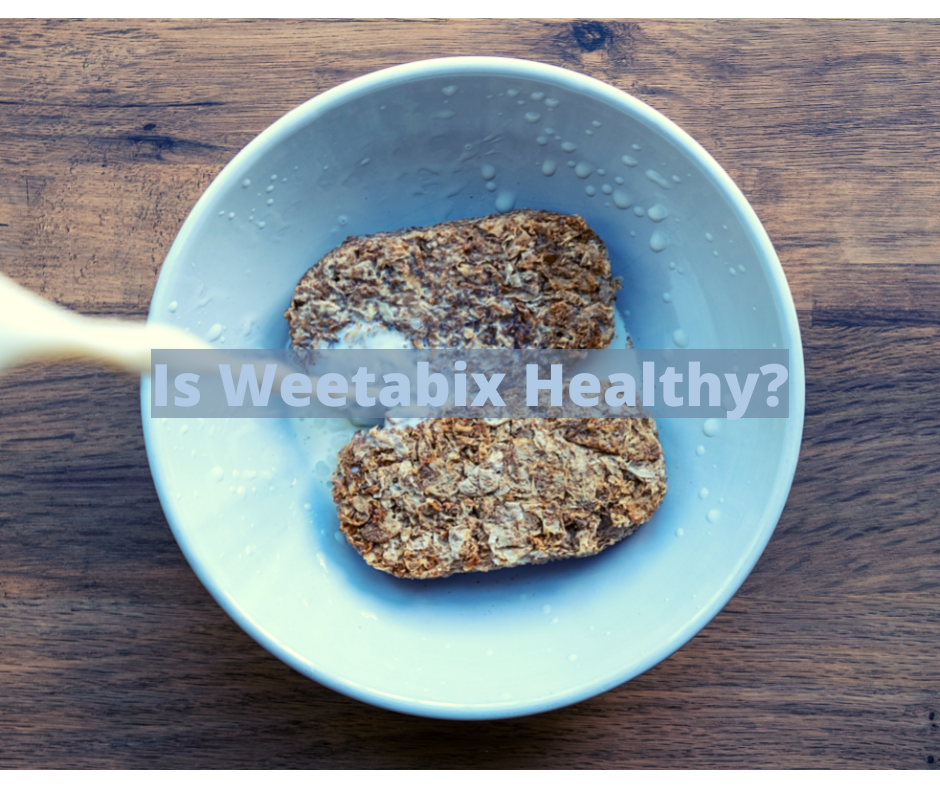
 Vegan3 months ago
Vegan3 months agoIs Weetabix Healthy? 14 Things You Should Know
-
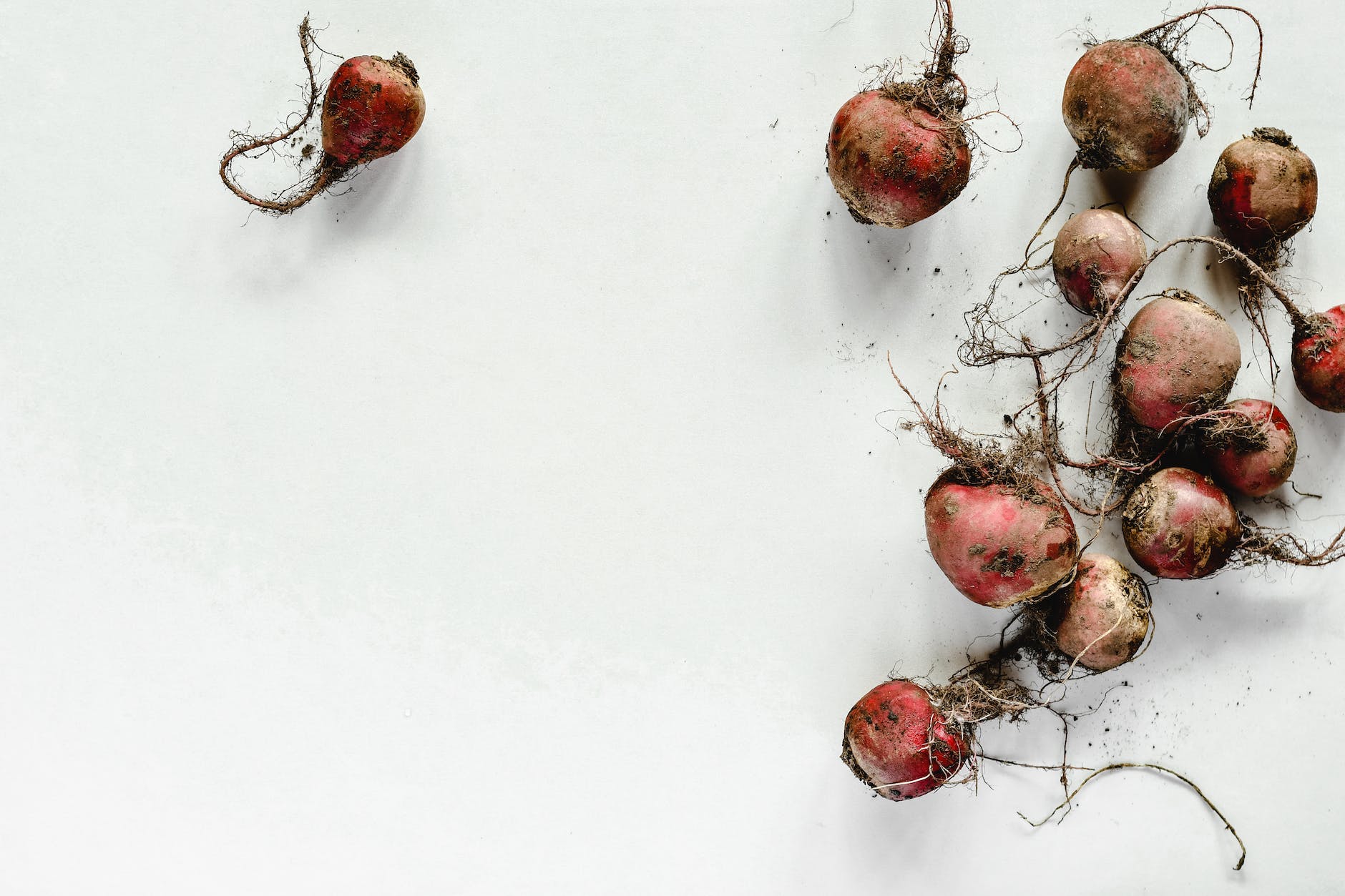
 Raw1 month ago
Raw1 month agoWhy Do Raw Beets Irritate My Throat?
-
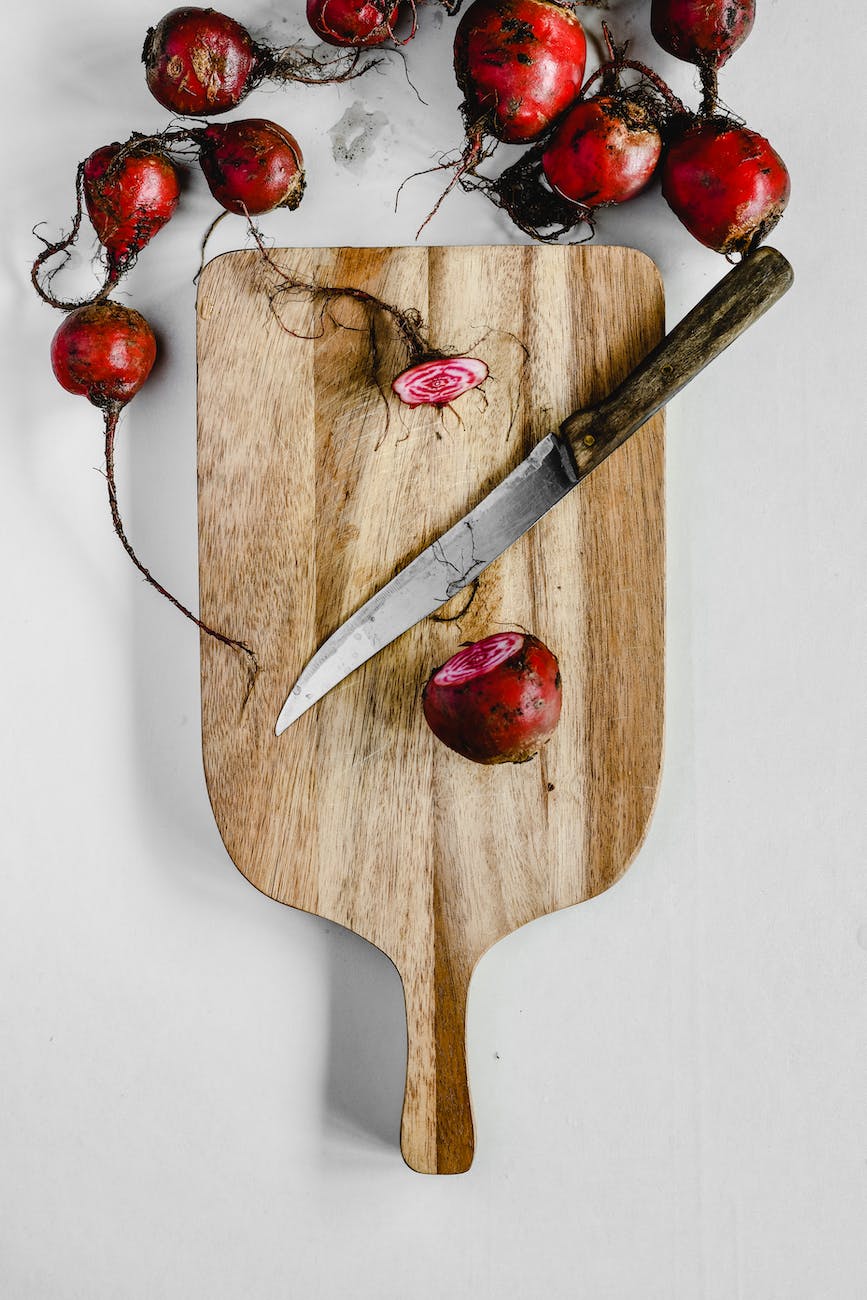
 Beginners Guides1 month ago
Beginners Guides1 month agoIf Beets Are Soft Are They Bad?
-

 Vegan3 months ago
Vegan3 months agoIs Gatorade Zero Healthy? 33 Things You Should Know
-
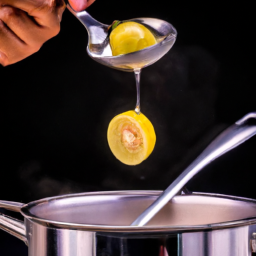
 Juice1 day ago
Juice1 day agoHow To Fix Too Much Lemon Juice In Soup
-
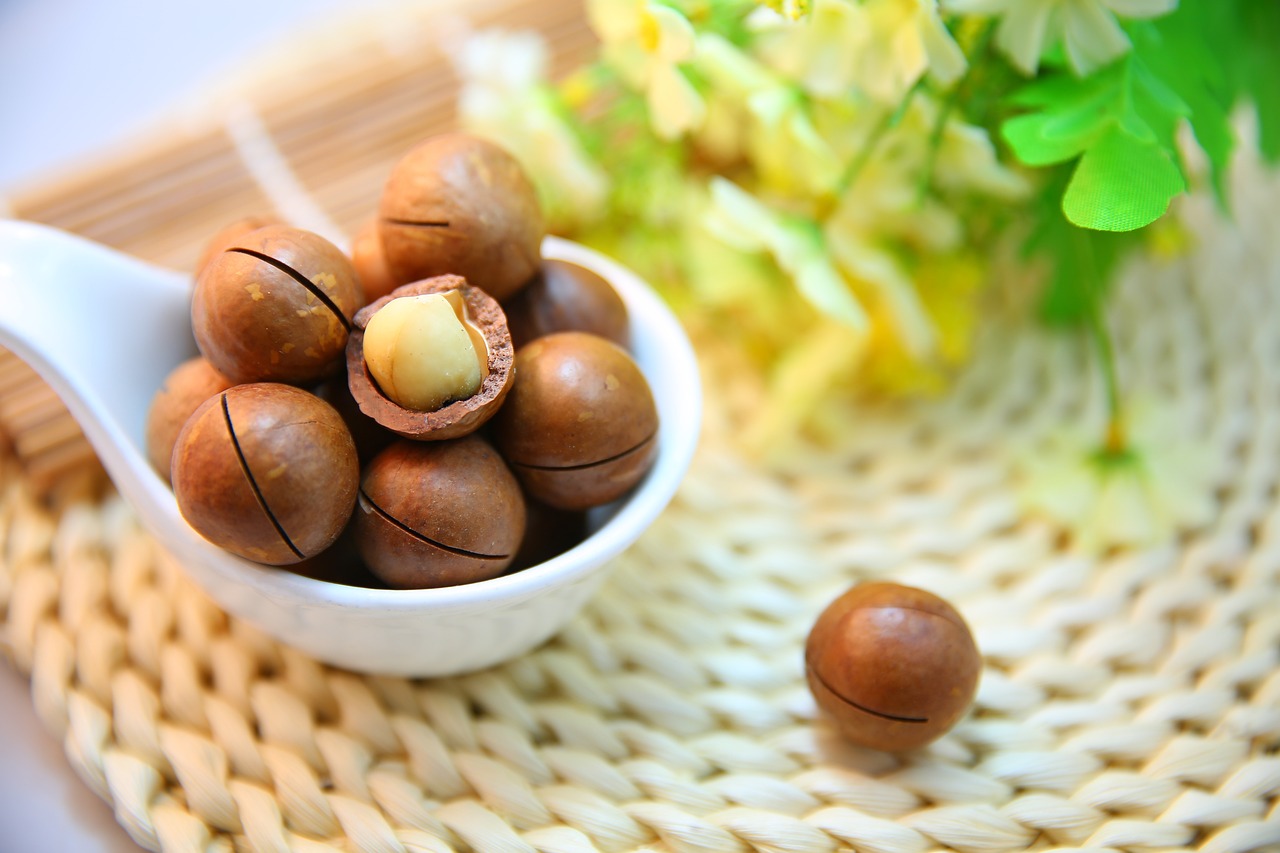
 Raw4 weeks ago
Raw4 weeks agoMacadamia Nuts – Which is Better Nutrition Raw Or Dry Roasted?
-

 Juice3 months ago
Juice3 months agoHow To Make Dmt Vape Juice
-
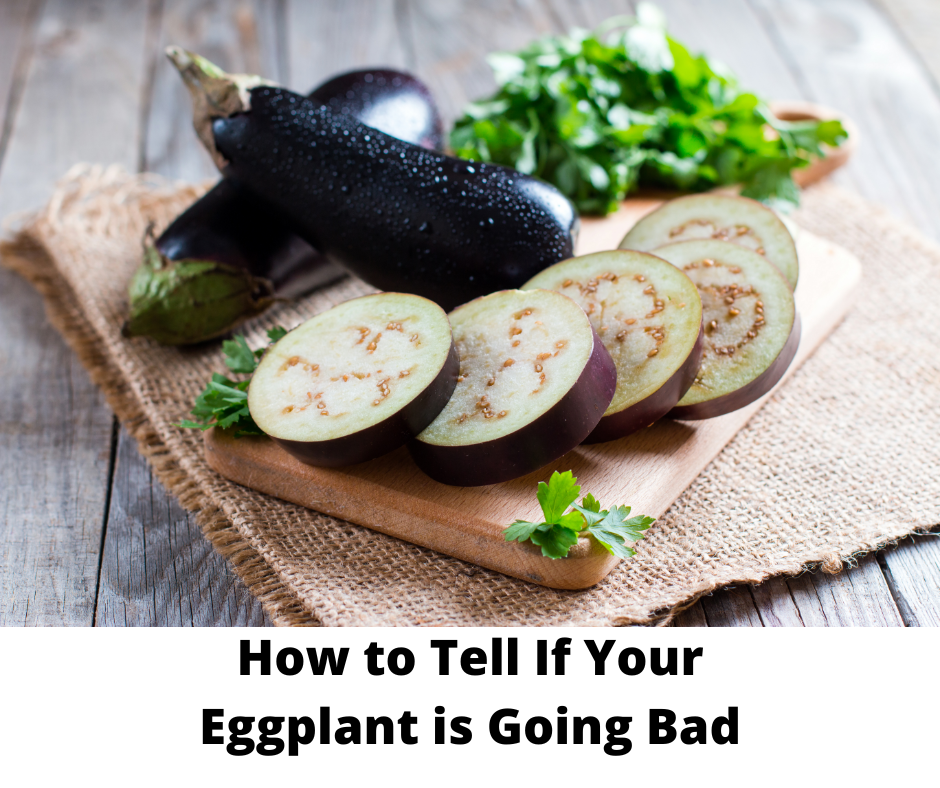
 Vegan3 months ago
Vegan3 months agoHow to Tell If Your Eggplant is Going Bad by Looking at the Color on the Inside







